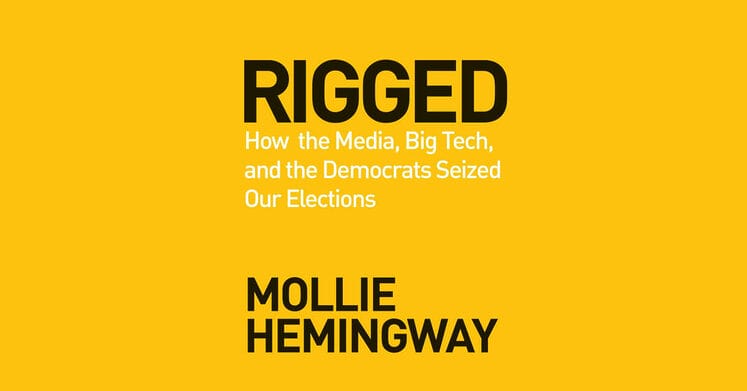Bill of the Day SB22-153, Election Security Measures
Bill summary:
The bill increases election security measures for the secretary of state’s office, election officials, candidates for elected office, and voters.
Current law authorizes the attorney general and the secretary of state (secretary) to enforce the provisions of the election code by injunctive action brought in the district court for the judicial district in which any violation occurs. Section 4 of the bill requires the district court and the supreme court, if applicable, to expedite scheduling and the issuance of any orders in connection with an enforcement action so a final ruling is made within specified periods.Section 5 authorizes a coordinated election official or the secretary’s office to file a petition in district court alleging that a person charged with a duty under the election code has committed or is about to commit a breach or neglect of duty or other wrongful act.
Current law specifies that certain employees in the clerk and recorder’s office are required to complete a certification program for election officials provided by the secretary (certification program). Section 6 includes a designated election official for a county, a coordinated election official for a county, and employees in the election division of the department of state (department), at the discretion of the secretary, as people required to complete the certification program. Section 6 also specifies new requirements for the length of time that an employee, designated election official, or coordinated election official has to complete the certification program.
The curriculum for the certification program is required to include specified courses. Section 7 requires that courses in voter registration and list maintenance, accessibility, coordinated elections, mail ballot and in-person voting processes, voting systems testing, risk-limiting audits, canvass, and election security be included in the certification program curriculum.Section 8 specifies the circumstances under which a person is ineligible to serve as a designated election official for a county or a coordinated election official. Section 8 also specifies that, while serving as a designated election official or a coordinated election official, a person is prohibited from knowingly or recklessly making, publishing, broadcasting, or circulating any false statement for the purposes of promoting misinformation or disinformation related to the administration of elections.
Certain elected officials or candidates for elective office are currently prohibited from preparing, maintaining, or repairing any voting equipment or device that is to be used in an election. Section 9 modifies the prohibition to apply to any contact with the voting equipment or device, rather than just physical contact. Section 9 also prohibits any elected official or candidate for elective office in a political subdivision with a population of 100,000 or more from having access to or being present in a room with voting equipment or devices without being accompanied by one or more persons with authorized access.
The governing body of any political subdivision is currently authorized to adopt an electronic or electromechanical voting system. Section 10 requires that for elections conducted under the “Uniform Election Code of 1992”, the governing body of any political subdivision is required to adopt an electronic or electromechanical voting system to be used for tabulating votes at all elections held by the political subdivision. This requirement does not apply to counties with fewer than 1,000 active electors at the date of the last general election.Section 11 prohibits a county from creating, permitting any person to create, or disclosing to any person an image of the hard drive of any voting system component without the express written permission of the department.
By a specified date, section 12 requires a designated election official to keep all components of a voting system in a location where entry is controlled by use of a key card access system and that is under video security surveillance recording. The designated election official is required to ensure that records in connection with access to the location of the voting system and video recordings of the location are created and maintained for specified periods. Section 3 defines terms in connection with these requirements.Section 12 also directs the general assembly to make an appropriation from the general fund to the department of state for the 2022-23 state fiscal year to be used to administer a grant program to provide assistance to counties in complying with the security requirements of the bill.Section 13 states that if a majority of a canvass board in a county is unable to or does not certify the abstract of votes for any reason by the applicable deadline, the secretary is required to review the noncertified abstract of votes and other evidence provided by the canvass board. If, after review, the secretary determines that the noncertified abstract of votes is sufficiently explicit in showing how many votes were cast for each candidate, ballot question, or ballot issue, the secretary is required to certify the results for the county and proceed to certifying state results.
Current law requires a person to comply with certain rules of the secretary when carrying out the duties of the secretary. Section 14 specifies that a person is also required to comply with other policies of the secretary, including the acceptable use policy for the statewide voter registration system, when carrying out such duties. Section 14 also specifies that any person who willfully interferes with a person in notifying or obstructs a person from notifying the department of a potential violation or retaliates against a person for providing such notice is subject to current penalties for election offenses.
Current law prohibits a person from tampering with electronic voting equipment with the intent to change the tabulation of votes in an election. In addition, section 15 prohibits a person from accessing electronic voting equipment or an election-night reporting system without authorization and specifies that a person who accesses such equipment or system is guilty of a class 5 felony. Section 15 also specifies that an authorized person who knowingly publishes or causes to be published passwords or other confidential information relating to a voting system will immediately have their authorized access revoked and is guilty of a class 5 felony.
Bill of the Day, Election Security Measures is sponsored by Senator Stephen Fenbeg and Representative Susan Lontine.
Also on Today’s Show (March 16, 2022)
Candidate Interview with Gubernatorial Candidate Greg Lopez
Greg Lopez, Republican gubernatorial candidate, talks with Kim in the first hour about why he is running for office. Learn more at Lopez’s website. Go here to support his campaign.
Candidate Interview with John Anderson
John Anderson is running for Douglas County Sheriff. He joins Kim in the first hour to discuss why he is running for the office. Learn more about Anderson’s campaign here. Go here to support his campaign.



Responses